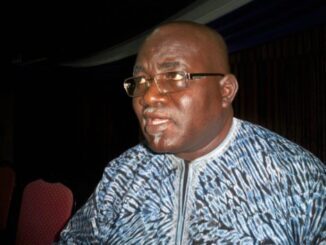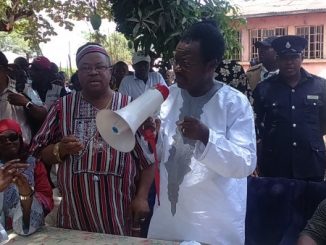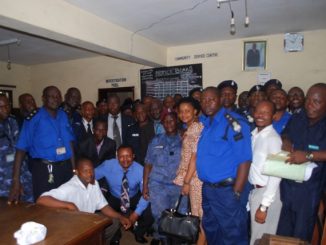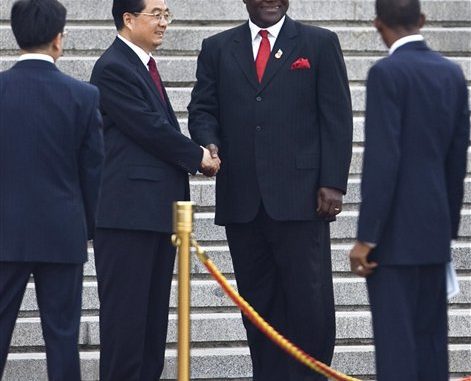
Partnership Built On Mutual Trust and Respect
John Baimba Sesay- CHINA
By July, 1971, Sierra Leone and China had established diplomatic relations on the foundation of mutual trust and respect. These ties of cooperation experienced a surge, when, in the same year, just three months after entering into diplomatic ties, Sierra Leone, voted in favor of a United Nations General Assembly Resolution, Resolution 2758, recognizing the People’s Republic of China as the only and legitimate representative of China in the UN Body.
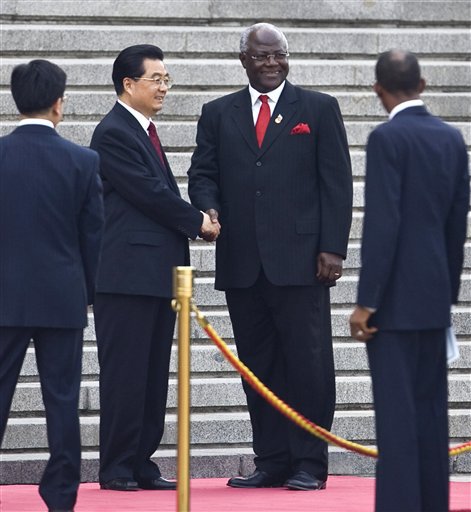
The Siaka Stevens/Mao Zedong era witnessed a considerable emergence of development cooperation, eventually leading to both nations today enjoying strategic ties, which have lasted for decades, with China serving as a major growth partner in Sierra Leone. This is even now demonstrated in the levels of technical and development assistance it continues to give to Sierra Leone in various sectors as in infrastructure, health, human resource and agriculture.
The strong and uninterrupted friendship both nations are enjoying thrives on those principles of mutual support and respect. Another reason for this strong relationship, it is believed, could be that the APC party appears to have a special relationship with China’s Socialist Party. Therefore, when, following the post Siaka Stevens era, the National Provisional Ruling Council overthrew the APC in a military coup in 1993, the relations both at the people-to-people and ambassadorial levels thawed momentarily between the two nations.
The warmth returned to the levels of 1971 following the election of President Ernest Bai Koroma. The revived bilateral ties played out more outstandingly during 2014 Ebola outbreak. The prompt response by the Chinese, including their support to the country’s Recovery Priorities speaks high of the decades of cooperation. Sierra Leone, it should be noted, has always supported China’s representation at the United Nations Security Council, being one of several African nations to have also supported China’s position on the South China Sea issue.
Also, the signing in China on December 1st, 2016, of a six cooperation agreements (Africa Tropical Disease Research and Treatment Centre (300 Million RMB Economic and Technical Cooperation Agreement); Freetown Ring Road (Limkokwing University to Regent Village); Debt Relief of 20 Million RMB (of previous Interest-Free Loan); Establishment of Consultation Mechanism between the two foreign ministries; Cooperation Agreement for Hospital Partner Assistance; and Mutual Visa Exemption of Diplomatic and Service (Official) Passport Holders) between Presidents Ernest Bai Koroma and Xi Jinping was a clear testament of the growth in the ties of cooperation and friendship.
President Ernest Bai Koroma’s 2016 visit to China saw the escalation of the relations between the two nations to a Comprehensive Strategic Status, “the highest pinnacle of bilateral relationship that China extends to countries.” China, President Koroma told me in a 2016 interview, “has contributed greatly in our infrastructural development programmes” referencing their interventions in road constructions, agriculture, health, education; with an increase in the number of scholarships they offer to deserving Sierra Leonean students. “When we started it was just a handful. Now we have over 100 students that are here.”
Sierra Leone, in the words of her Minister of State 1, Ministry of Foreign Affairs and International Cooperation, will use the scaled up bilateral relations through comprehensive, strategic cooperative partnership in a bid to fully take advantage of the ten point cooperation package announced during the 2015 Johannesburg FOCAC Summit. The 2015 Johannesburg FOCAC cooperation package includes areas of “industrialization, agricultural modernization, infrastructure, financial services, green development, trade and investment facilitation, poverty reduction and public welfare, public health, people-to-people exchanges, and peace and security.” These are mostly in line with the country’s development trajectory, as contained in the Agenda for Prosperity. As President Koroma said in December, 2016, it is “easy for us to quickly identify projects and activities, to quickly work along other African countries especially on regional issues to implement the programmes of expectations by the Chinese as clearly outlined in the FOCAC engagement.”
China has made commitment towards the construction of a Centre for Disease Control (CDC) in Sierra Leone to serve the West African Sub Region; and building the capacity of Sierra Leone’s health sector. China on the other hand continues to tap into Sierra Leone’s potential for investments and an investor friendly environment. In a nutshell, both nations continue to pursue mutually beneficial cooperation.


